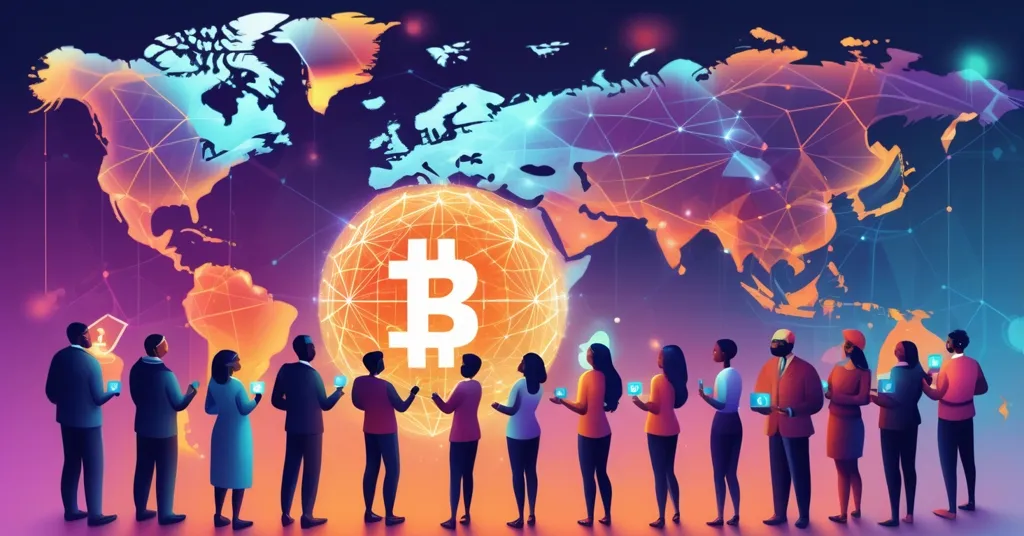Deobanks: Revolutionizing Finance for the 1.4 Billion Unbanked

Unbanked No More: How Deobanks Are Solving the Financial Access Problem
Financial exclusion is a global crisis, leaving over 1.4 billion people without access to basic banking services. Deobanks, powered by blockchain technology, are breaking these barriers, offering a new hope for the unbanked. Traditional banks and neobanks, limited by KYC requirements and physical infrastructure, often fail to reach those in need. However, Deobanks like WeFi are redefining financial inclusion with their digital, borderless, and user-controlled services.
- 1.4 billion people lack basic banking services
- Deobanks use blockchain to offer inclusive finance
- WeFi’s model simplifies onboarding and user control
What Are Deobanks?
Deobanks represent a revolutionary approach to banking, leveraging blockchain technology to provide services without the constraints of traditional financial institutions. Unlike traditional banks and neobanks, which require extensive KYC (Know Your Customer) documentation and physical branches, Deobanks operate fully digitally, making banking accessible to anyone with an internet connection. Blockchain, a secure way of recording transactions, allows Deobanks to offer services without the need for a traditional bank’s infrastructure.
WeFi’s Innovative Approach
WeFi stands at the forefront of the Deobank revolution, using blockchain to streamline and simplify financial services. WeFi’s model offers both non-custodial and custodial accounts. Non-custodial accounts give users full control over their funds, eliminating the risk of account freezes or third-party interference. This is a stark contrast to traditional banking, where users often have little say over their money. Custodial accounts, on the other hand, offer a more familiar banking experience while still leveraging the benefits of blockchain technology.
WeFi’s approach to onboarding is a game-changer. By reducing the need for extensive documentation, WeFi makes it easier for the unbanked to access financial services. This model is particularly beneficial for those in remote or underdeveloped regions who are often excluded by traditional banking systems.
Challenges and Solutions
Despite their promise, Deobanks face significant challenges. Blockchain technology, while revolutionary, still grapples with issues of scalability and interoperability. WeFi addresses these challenges through integration with LayerZero, enhancing the efficiency and reach of its services. Additionally, the environmental impact of blockchain operations is a concern, but WeFi’s commitment to sustainability shows that Deobanks can align with broader societal values.
Security is paramount in the DeFi space, where users bear full responsibility for their assets. WeFi’s focus on transparency and security helps mitigate these risks, ensuring that users can trust the platform with their financial future. However, the crypto space is notorious for scams and unrealistic promises. Deobanks must maintain transparency and a genuine commitment to their users to build trust and avoid becoming just another buzzword.
The Future of Financial Inclusion
The rise of Deobanks is part of a broader movement towards financial democratization. By giving individuals control over their financial assets, Deobanks empower people to participate in the global economy on their terms. This aligns with the principles of decentralization and effective accelerationism, pushing the boundaries of what’s possible in finance and challenging the status quo.
While Bitcoin remains the cornerstone of the cryptocurrency revolution, Deobanks and other blockchain-based solutions play a crucial role in filling niches that Bitcoin alone cannot address. They offer a complementary approach to financial inclusion, one that is more accessible and tailored to the needs of the unbanked population.
The potential of Deobanks to transform the financial landscape is undeniable. They offer a glimpse into a world where finance is truly inclusive, where anyone with an internet connection can access essential financial services. This is not just a technological revolution; it’s a social one, promising to uplift billions of people from financial exclusion.
Key Questions and Takeaways
What is the main problem addressed?
Financial exclusion affects over 1.4 billion people globally, largely due to barriers in traditional and neobank systems.
How do Deobanks differ from traditional banks and neobanks?
Deobanks use blockchain technology to offer fully digital, inclusive, and borderless financial services, unlike traditional banks and neobanks which are limited by KYC requirements and physical infrastructure.
What role does WeFi play in the Deobank revolution?
WeFi leads the Deobank revolution by offering streamlined and inclusive financial services, simplifying onboarding, and providing users with control over their funds through non-custodial and custodial accounts.
What are the benefits of non-custodial accounts offered by Deobanks?
Non-custodial accounts empower users with full control over their funds, eliminating the risk of account freezes, restrictions, or third-party interference.
How do Deobanks contribute to financial inclusion?
Deobanks contribute to financial inclusion by simplifying the onboarding process, reducing documentation requirements, and providing access to essential financial services to anyone with an internet connection.
Conclusion
Deobanks, with their innovative use of blockchain technology, offer a promising path towards financial inclusion. By simplifying access to banking services and giving users control over their funds, Deobanks are not just a technological innovation but a beacon of hope for the unbanked. However, the journey is far from over. The crypto community must remain vigilant, ensuring that Deobanks remain true to their ideals of decentralization, freedom, and empowerment. As we continue to push the boundaries and challenge the status quo, we move closer to a world where no one is left unbanked.



